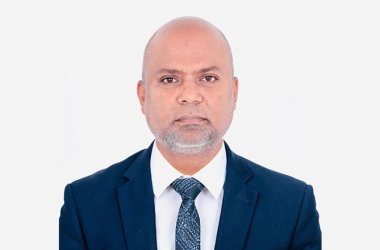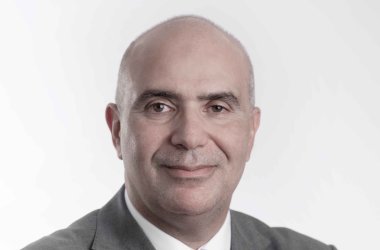
Professor Tadhg O’Donovan, Deputy Vice Principal – Academic Leadership at Heriot-Watt University Dubai.
The United Arab Emirates (UAE) has emerged as a global hub for technological innovation, and its commitment to sustainability is increasingly evident in integrating Artificial Intelligence (AI) into eco-friendly technologies. As the world grapples with the challenges of climate change, the UAE stands at the forefront, harnessing the power of AI to drive sustainable practices and environmental conservation.
The Landscape of AI-Powered Sustainability in the UAE:
The UAE recognises and promotes the pivotal role of AI in attaining sustainability objectives, particularly as this advanced technology is projected to boost the country’s GDP by 35% until 2031. It is anticipated to bring about a 50% annual reduction in government expenditures, streamline paper transactions, and save millions of work hours annually. The UAE Strategy for Artificial Intelligence 2031 aims to enhance government performance, expedite achievements, and establish innovative and productive work environments that ensure heightened productivity.
Green Energy
AI is playing a significant role in advancing sustainability, particularly in optimising the production of green energy. The Dubai Electricity and Water Authority (DEWA) actively contributes to the Smart Dubai initiative. In a bold step towards enhancing energy sustainability and efficiency through AI, DEWA introduced Digital DEWA, its digital division, to transform into the world’s first digital utility equipped with autonomous renewable energy storage systems. DEWA is not only focusing on digital transformation but also implementing groundbreaking projects. Among these is establishing a 250 MW pumped-storage hydroelectric power plant in Hatta, a pioneering initiative in the Arabian Gulf region with an impressive lifespan of 80 years. DEWA was among the pioneering government entities to provide its services across various intelligent platforms, contributing to the transformation of the Dubai government into a fully smart model and achieving the milestone of becoming the first paperless government by the conclusion of 2021.
Heriot-Watt University Dubai is also taking steps to produce green energy. Innovators at Heriot-Watt University in Dubai have established a solar energy testing facility and are working with industry to develop new solar technologies and optimise renewable energy systems. We are also setting up a Green Hydrogen demonstrator on campus with a number of companies (SunGreenH2, PlusZero and Logan Energy) and using the energy from the solar test site to power the electrolyser. Our Dubai campus is also distinguished as the only campus in the UAE to attain Gold status from the Leadership in Energy and Environmental Design (LEED), the globally recognised green building rating system. The campus uses occupancy sensors to optimise energy performance for 98% of the lighting load, while daylight sensors are employed for 63% of the lighting load to achieve energy efficiency.
Waste Management
AI is transforming waste management methodologies in the UAE, introducing intelligent practices for more efficient operations. Smart waste bins, integrated with sensors and AI algorithms, are strategically deployed to optimise waste collection routes. A significant milestone was reached in July 2023 when Dubai unveiled the first operational phase of the Waste-to-Energy project. This initiative is the world’s largest and most efficient facility, utilising state-of-the-art technology systems with zero environmental impact.
Sustainable Agriculture
In the agricultural domain, AI has played a significant role in monitoring various soil, air, and water parameters. The Abu Dhabi Environment Agency has pioneered a groundbreaking initiative, the world’s first-of-its-kind, employing cutting-edge remote sensing technologies through satellites and drones for soil monitoring. The Bustanica farm in Dubai has also claimed the title of the world’s largest hydroponic agriculture-based vertical farm.
Urban Planning and Transportation
AI is transforming urban environments in the UAE, cultivating cities that are smarter and more sustainable. Intelligent urban planning is implemented through AI-powered algorithms, optimising energy consumption, mitigating traffic congestion, and improving overall resource efficiency. The incorporation of AI into transportation systems is especially notable. Smart traffic management systems utilise real-time data to streamline traffic flow, leading to a reduction in both congestion and emissions. Additionally, AI-driven public transportation systems are being introduced to elevate efficiency and promote the adoption of eco-friendly commuting methods.
Challenges and Future Prospects:
Although the UAE has made commendable progress in AI-powered sustainability, there are still challenges to address. Ensuring the ethical use of AI, addressing concerns about data privacy, and ensuring that technological advancements benefit all segments of society are crucial considerations. The UAE’s forward-thinking approach to AI-powered sustainability represents a significant stride towards a more environmental-friendly future. The UAE is setting a global example by harnessing AI’s potential in energy, waste management, agriculture, and urban planning. As statistics continue to highlight the positive impact of these initiatives, the UAE’s pursuit of sustainable development through AI remains both promising and inspirational.





